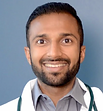Prolotherapy Treatments
What is Prolotherapy?
-
Prolotherapy is a technique that aims to stimulate the body’s innate ability to heal. It is a therapy that targets injured, painful, and weak soft tissues (ligaments and tendons) to trigger a healing response. Often the body needs a simple push to ‘remember’ an injury that has healed poorly, which is exactly what Prolotherapy aims to do.
-
PROLO = proliferative. The basic mechanism is simple: a mildly irritating substance (dextrose, a sugar) is injected into the affected ligament (attach bone to bone) and/or tendon (attach muscle to bone), leading to local irritation and inflammation.

Our body depends on its own inflammatory cascade for tissue repair after an injury – this is referred to as a natural healing response. Contrary to the mechanism of your daily Advil or Aleve (anti-inflammatory), Prolotherapy works by activating and increasing the inflammatory pathways that the body requires to heal. Inflammation triggers an influx of cells that contribute to tissue regeneration and repair, leading to the deposition of new collagen. Collagen is a key component of ligaments and tendons. New collagen shrinks as it matures, which tightens the ligament/tendon and makes it stronger.
Prolotherapy is a highly effective technique for resolving pain that stems from ligament or tendon weakness or laxity. After an injury or trauma, scar tissue deposition interferes with the integrity of the tissue. Ligaments and tendons have poor blood supply in comparison to their muscular counterparts, which reduces the chance that they will heal completely and correctly. When a ligament is weak, muscles must take over to stabilize the joint, leading to chronic muscle spasm, trigger point formation, and compensation. Prolotherapy targets both tendons and ligaments to enhance soft tissue integrity and create lasting stability at the injured joint.
Where will I be injected?
This is very dependent on your injury. Prolotherapy targets the weakest area of a ligament/tendon: where it attaches to the bone. The outer layer of the bone – the periosteum – is full of nerve endings, and is therefore highly sensitive to pain. Second to this on the pain scale are ligaments, which are also abundant with nerve endings. As common sources of chronic pain, the periosteum and ligamentous attachments are areas targeted by your injections.
How many injections will I require?
This is also largely dependent on the individual. Most cases require anywhere from 1 to 3 treatments for significant improvement.
Remember, we are inducing an inflammatory healing cascade, which means that external factors matter for your success! Factors that support healing include: adequate sleep, stress management, alcohol reduction/elimination, sugar elimination, gentle exercise, laughter, adequate protein, collagen-boosting IV therapy treatments… and the list could go on! That’s where you come in outside of the clinic walls, and where you and I discuss your at-home plan of action for optimal recovery.
What is prolotherapy indicated for?
Prolotherapy is excellent for the resolution of chronic musculoskeletal pain that is brought about by injury, ligament laxity or joint hypermobility, and/or chronic overuse. Conditions include, but are not limited to: arthritis, sprain or strain, degenerative disc disease, disc herniation, low back pain, neck pain, MCL/ACL/PCL/LCL tear, previous dislocation, tendonitis, whiplash, and sciatica.
Please Note: Dr. Nagra currently only performs Prolotherapy injections on extremities (ie. hip, knee, ankle, food, shoulder, elbow, wrist, hand), but not currently the spine (ie. neck and back)."
Treatment Outline:
Primary assessment is done during the first visit, followed by treatments during subsequent 30-minute visits, 4-6 weeks apart. Time between treatments is essential, as this gives the body a chance to implement its healing cascade.
Adjustments may be made individually and accordingly.
What to expect following a treatment:
You may experience soreness and bruising at the sites of injection. You will likely experience an aching sensation or tightness for the following few days as your body’s inflammation cascade responds to treatment. Do not take any NSAIDs (Advil/Ibuprofen, Naproxen, Celebrex) or cortisone injections, as these will block inflammation and counteract your treatment. If a pain reliever is required, you may take Tylenol/Acetominophen at a maximum dose of 1g daily. You are encouraged to avoid any new or ballistic activity for at least one week following treatment. This is very important to avoid further injury and allow for healing to occur. In other words, don’t plan any ski trips or hockey tournaments immediately after!
What constitutes a Prolotherapy injection?
-
Procaine
-
Halts muscle spasms, thereby encouraging blood flow to the area that carries nutrients with it, and metabolic wastes away.
-
Breaks up scar tissue by calling in white blood cells that can dissolve and remove damaged tissue.
-
Increases creatine uptake into muscles. Creatine provides increased muscle strength, which makes the damaged tissue less likely to become re-injured.
-
Resets nerve transmission pathways (action potentials). As an anesthetic, procaine temporarily numbs a nerve, thereby increasing its ability to rest. This paves the way for the potential to gain back the loss of charge that occurs during a trauma.
-
-
Dextrose
-
A sugar (like glucose) that the body uses to generate structures, particularly soft tissue.
-
A mild irritant and consequent proliferant that induces the local inflammatory cascade to regenerate healing of partial tears (sprains, strains).
-
Who performs Tonume's Prolotherapy Treatments?
Dr Joel Kailia, and Dr Matthew Nagra offer Prolotherapy Treatments here at Tonume Integrated Health.
All cases of chronic pain and injury are different; therefore, every individual will require a distinct treatment plan tailored specifically to their case. This is why initial assessment and consistent follow-up is so important. If you think you might benefit from this therapy, don’t hesitate to inquire.
Please contact our Patient Care Coordinators with any further questions
Dr. Joel
Kailia,
Medical
Doctor
Dr. Matthew
Nagra,
Naturopathic Doctor


